
Ares is the Greek god of war and courage. He is one of the Twelve Olympians, and the son of Zeus and Hera. The Greeks were ambivalent towards him. He embodies the physical valor necessary for success in war but can also personify sheer brutality and bloodlust, in contrast to his sister, the armored Athena, whose martial functions include military strategy and generalship. An association with Ares endows places, objects, and other deities with a savage, dangerous, or militarized quality.
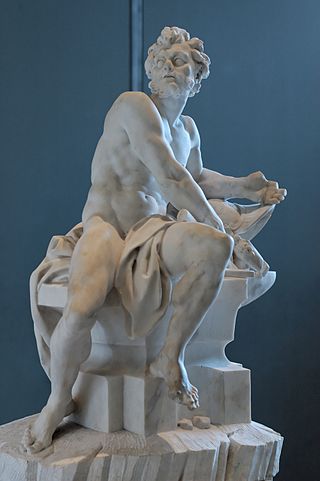
Hephaestus is the Greek god of artisans, blacksmiths, carpenters, craftsmen, fire, metallurgy, metalworking, sculpture and volcanoes. Hephaestus's Roman counterpart is Vulcan. In Greek mythology, Hephaestus was either the son of Zeus and Hera or he was Hera's parthenogenous child. He was cast off Mount Olympus by his mother Hera because of his lameness, the result of a congenital impairment; or in another account, by Zeus for protecting Hera from his advances.

In ancient Greek religion and mythology, the twelve Olympians are the major deities of the Greek pantheon, commonly considered to be Zeus, Poseidon, Hera, Demeter, Aphrodite, Athena, Artemis, Apollo, Ares, Hephaestus, Hermes, and either Hestia or Dionysus. They were called Olympians because, according to tradition, they resided on Mount Olympus.

The Olympians are a fictional species appearing in American comic books published by Marvel Comics. These characters are based on the Twelve Olympians/Dii Consentes and other deities of Classical mythology. During the beginning of the 1960s, the exploits of the Asgardians Thor and his evil brother Loki demonstrated that an updating of ancient myths could again win readers. In 1965, Stan Lee and Jack Kirby introduced the Olympians in Journey into Mystery Annual #1.

Queen Hippolyta is a superhero appearing in American comic books published by DC comics, based on the Amazon queen Hippolyta from Greek mythology. Introduced in 1941 during the Golden Age of Comic Books, she is the queen of the Amazons of Themyscira, the mother of Wonder Woman, and in some continuities, the adopted mother of Donna Troy.
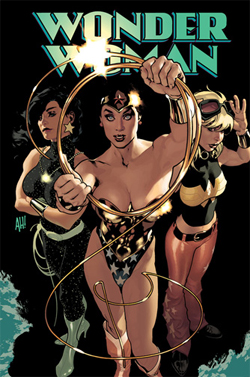
The Lasso of Truth is a weapon wielded by DC Comics superhero Wonder Woman, Princess Diana of Themyscira. It is also known as the Lariat of Truth, the Magic Lasso, the Lasso of Hestia or the Golden Perfect. It was created by William Moulton Marston, inventor of the lie detector, as an allegory for feminine charm, but it later became more popular as a device to extract truth from people.

Ares is a character appearing in DC Comics publications and related media. Based on the eponymous Greek mythological figure, he is the Olympian god of war and major recurring adversary of the superhero Wonder Woman. He has been featured significantly as a persistent foe throughout every era of Wonder Woman's comic book adventures, and in many adaptations of her stories in other media.

Hercules is a fictional Olympian god in the DC Universe based on the Greek demigod and hero of the same name.
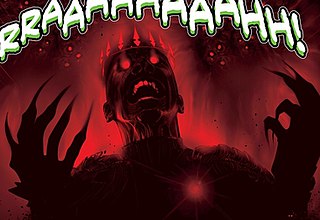
Hades is a fictional character appearing in DC Comics publications and related media, commonly as an adversary and sometimes-ally of the superhero Wonder Woman. Based upon the eponymous Greek mythological figure, he is the Olympian god of the dead and ruler of the underworld.
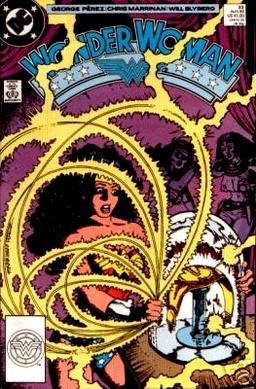
The Golden Girdle of Gaea is a fictional object depicted in the DC Comics book Wonder Woman. Originally created by William Moulton Marston as the Magic Girdle of Aphrodite from its tradition as originating from the Girdle of Aphrodite or Venus as an allegory for the power of women's allure, it is based on the mythological girdle obtained by Heracles from Hippolyte as part of his Twelve Labors.
The Olympian Gods are characters based upon classical mythology who appear primarily in Wonder Woman, Captain Marvel and Aquaman comics.
Athena is a fictional deity appearing in American comic books published by Marvel Comics. She is based on the Greek Goddess of the same name.

Poseidon is the name of a DC Comics deity who is based on the Greek god of the same name. Due to his status as Greek god of the sea, the character has figured primarily in stories relating to two of DC Comics' main superhero properties: Wonder Woman and Aquaman.

The Children of Ares are several fictional characters appearing in DC Comics publications and related media, commonly as recurring adversaries of the superhero Wonder Woman. Primarily based on eponymous Greek mythological figures, they are malevolent progeny of Wonder Woman's nemesis, the war god Ares. Three in particular – Deimos, Phobos and Eris – have emerged as especially enduring characters, appearing in every era of Wonder Woman's comic book adventures since debuting in 1969's Wonder Woman #183. Beginning in the Silver Age of Comic Books, these three characters have often been presented as Ares’ principal legates in his campaigns for universal conquest, and have also confronted Wonder Woman on their own, individually as well as with one another, as antagonists independent of their father.
Mythic Warriors is a 1998-2000 anthology animated television series, which featured retellings of popular Greek myths that were altered so as to be appropriate for younger audiences, produced by Nelvana and Marathon Media. Two seasons of episodes were produced in February 8, 1998 and March 14, 1999; then aired as reruns until May 21, 2000, when CBS' abolition of its Nelvana-produced children's programming in favor of Nick Jr. and later, Nickelodeon content resulted in its cancellation. The series was based on the book series Myth Men Guardians of the Legend written in 1996 and 1997 by Laura Geringer and illustrated by Peter Bollinger.
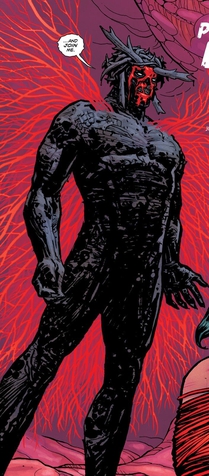
The First Born is a supervillain appearing in American comic books published by DC Comics, commonly as an adversary of the superhero Wonder Woman. Created by Brian Azzarello and Cliff Chiang, the character first appeared in Wonder Woman #13.

Zeus is a fictional deity in the DC Comics universe, an interpretation of Zeus from Greek mythology. His appearances are most significant in stories of Wonder Woman. With the 2011 relaunch of DC Comics dubbed The New 52, Zeus has received a prominent role in the Wonder Woman mythos, as he is now the biological father of Wonder Woman through Hippolyta.
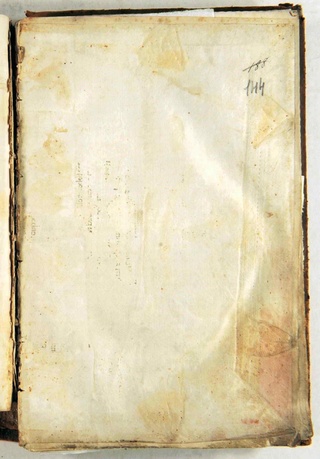
Dialogues of the Gods are 25 miniature dialogues mocking the Homeric conception of the Greek gods written in the Attic Greek dialect by the Syrian author Lucian of Samosata. There are 25 dialogues in total. The work was translated into Latin c. 1518 by Livio Guidolotto, the apostolic assistant of Pope Leo X.

Zola is a fictional DC Comics character, created by writer Brian Azzarello and artist Cliff Chiang. She first appeared in Wonder Woman #1, and since then as played an integral part in the series. Zola is featured as a young woman carrying Zeus' child, thus entering dangerous situations, the first one being of Hera aiming to punish her for sleeping with her husband. Wonder Woman takes Zola under her protection and tries to fight off forces that might try to harm her or her baby. Zola was a ploy used by Athena to make herself a human to restore Zeus to the throne of Olympus by mating and giving birth to him as a human. She is a young woman and a mother to Zeke, a child of Zeus.

Hermes is a character in DC Comics. He is based on the Greek god of the same name.
















